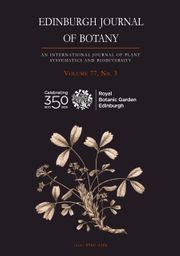Crossref Citations
This article has been cited by the following publications. This list is generated based on data provided by Crossref.
Langer, Max
Speck, Thomas
and
Speck, Olga
2021.
Petiole-Lamina Transition Zone: A Functionally Crucial but Often Overlooked Leaf Trait.
Plants,
Vol. 10,
Issue. 4,
p.
774.


